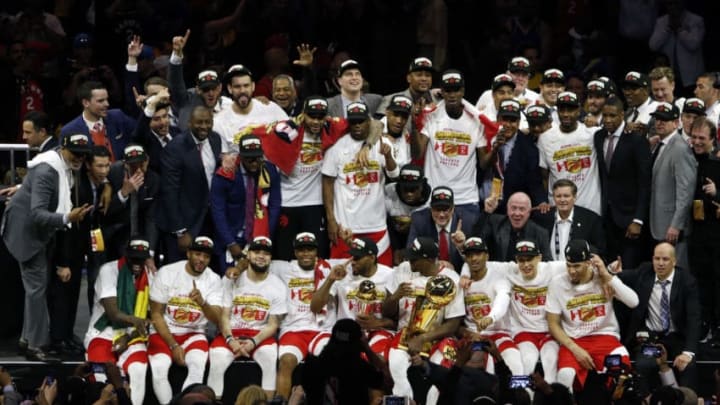
Dwane Casey
Dwane Casey was the head coach that Ujiri inherited from the Raptors’ previous General Manager, Bryan Colangelo. Colangelo’s record with the Raptors is a mixed bag, to say the least. On the one hand, in the six years he spent in Toronto, the Raptors had only two seasons where their regular-season records were at or above .500, two consecutive first-round exits from the playoffs and four consecutive losing seasons.
On the other hand, Colangelo was responsible for adding Jonas Valanciunas, Terrence Ross, DeMar DeRozan, and Kyle Lowry to the roster and hiring Dwane Casey to coach them. Having the benefit of hindsight, we know that worked out really well. But in the early days of his leadership, Masai Ujiri had some decisions to make.
It’s not surprising when a new General Manager walking into a situation that has been perennially disappointing decides to make changes to the team’s coaching. But Ujiri is much too patient, savvy and analytical to make a move based solely on conventional wisdom. There was subtle data to suggest that maybe it would make sense to keep Casey exactly where he was.
In the two years that Casey was in Toronto before Ujiri arrived, Casey had already improved the team’s record. And, unlike some… other ownerships… MLSE was realistic about the fact that they weren’t going to get there overnight. And of course, Masai must have been familiar with Casey’s work as Rick Carlisle‘s assistant coach with the 2010- 11 NBA Champion Dallas Mavericks.
Whatever went into the decision, Ujiri kept Casey in his position and the Raptors had an improved regular-season record for the next four seasons as Casey lead the Raptors to one franchise milestone after another. The Raptors’ first 50-win season, the first time they won a seven-game playoff series and their first appearance in the Eastern Conference Finals all happened with Dwane Casey as head coach.
After the Raptors’ franchise-best 59-win 2017- 18 season, on May 9, 2018, Dwane Casey was named NBA Coach of the Year. Then, only two days later, on May 11, Casey was fired by Masai Ujiri and the Toronto Raptors’ front office.
I remember my mom saying at the time, “I can’t believe they did that.” And I’m sure that sentiment was shared by many casual Raptors’ fans. Not to mention NBA talking-heads Stephen A. Smith and Max Kellerman.
Smith said that the playoff losses were really about LeBron James and had nothing to do with Dwane Casey. Kellerman blamed it on geography. Yep, you read that right. The Raptors home in Toronto, which he describes as, “a cold wether city“, deterred talent from wanting to play there and that was the real problem.
One word.
Ugh!
Hey Max, maybe have a look at a map, huh? New York City, Chicago, Milwaukee, Detroit, Minnesota. All cold-weather locations that I’ve never heard this argument connected to. And PS, I know people from Toronto who, having visited Chicago in January said they’ve never been colder in their lives. So there’s that.
For never-miss-a-game Raptors fans like myself, not only was learning that Dwane Casey was no longer the Raptors’ head coach good news, it was good news long-overdue. For five seasons in a row, we had watched the Raptors not only get outplayed in the playoffs but also get outcoached.
And that’s not meant to take anything away from what Dwane Casey did. When you hear Masai Ujiri or Kyle Lowry saying that Casey is part of their championship, that’s not just empty platitudes. Casey was at the forefront of creating a winning culture within the Toronto Raptors’ organization and he deserves loads of credit for that. If NBA titles were won in the regular season, I would have been happy to keep Casey forever. But that’s just not how it works.
Season after season, we watched as Casey showed that he didn’t have the flexibility required to make the winning of multiple seven-game series a given. He was slow to make adjustments if he made them at all. It always felt like when Casey assessed the challenges from one game to the next, his conclusion was that his plan just needed to be executed better, never tweaked, or heaven forbid, changed. That lack of creativity and rigidity simply doesn’t win in the playoffs.
Retaining Dwane Casey when he came to Toronto and firing him when he did is one of those instances where Misai Ujiri has struck the correct balance between patiently avoiding knee-jerk reactions and realizing when a ceiling had been reached and not hesitating to pull the trigger on changes.
